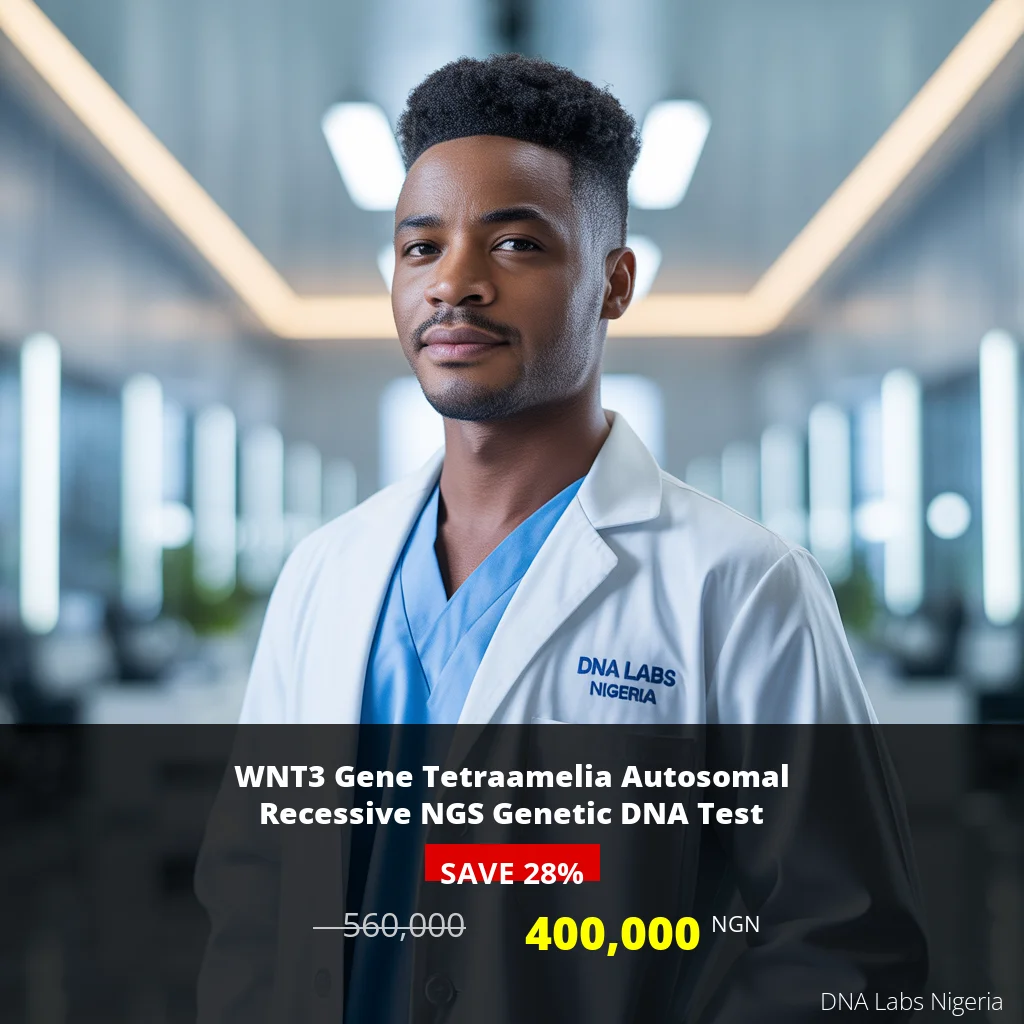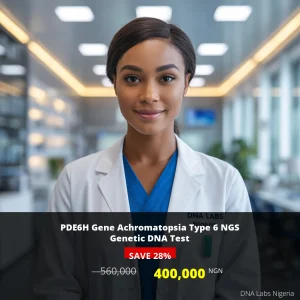WNT3 Gene Tetraamelia Autosomal Recessive NGS Genetic DNA Test
Introduction
The WNT3 Gene Tetraamelia Autosomal Recessive NGS Genetic DNA Test is a specialized diagnostic test designed to identify mutations in the WNT3 gene that are associated with Tetraamelia, a rare congenital condition characterized by the absence of limbs. This test is particularly important for families with a history of the condition, as it allows for early diagnosis and better management options.
What the Test Measures
This genetic test utilizes Next Generation Sequencing (NGS) technology to detect mutations in the WNT3 gene. By analyzing the genetic material, healthcare providers can determine if a patient carries mutations that may lead to Tetraamelia.
Who Should Consider This Test?
- Individuals with a family history of Tetraamelia or related dysmorphology conditions.
- Patients presenting with symptoms suggestive of limb abnormalities.
- Parents who have had one or more children affected by genetic disorders.
Benefits of Taking the Test
- Early identification of genetic mutations associated with Tetraamelia.
- Informed family planning and management decisions.
- Access to genetic counseling and support resources.
Understanding Your Results
Results from the WNT3 Gene Tetraamelia test will typically be available within 3 to 4 weeks. A genetic counselor will help interpret the results, providing guidance on the implications for the patient and their family.
Test Pricing
| Price Type | Amount (NGN) |
|---|---|
| Discount Price | 400,000 NGN |
| Regular Price | 560,000 NGN |
Book the Test Today!
To book the WNT3 Gene Tetraamelia Autosomal Recessive NGS Genetic DNA Test, please call or WhatsApp us at +2348110567037. Our team is ready to assist you with scheduling your appointment and answering any questions you may have.
Pre-Test Instructions
Before undergoing the WNT3 Gene Tetraamelia test, patients should have a clinical history assessment and attend a genetic counseling session. This will involve drawing a pedigree chart of family members affected by the WNT3 gene to better understand the genetic risks involved.
Test Sample Type
The test can be conducted using:
– Blood
– Extracted DNA
– One drop of blood on FTA Card
Specialty and Department
This test falls under the Pediatrics specialty and the Genetics department, focusing on dysmorphology and genetic conditions.







